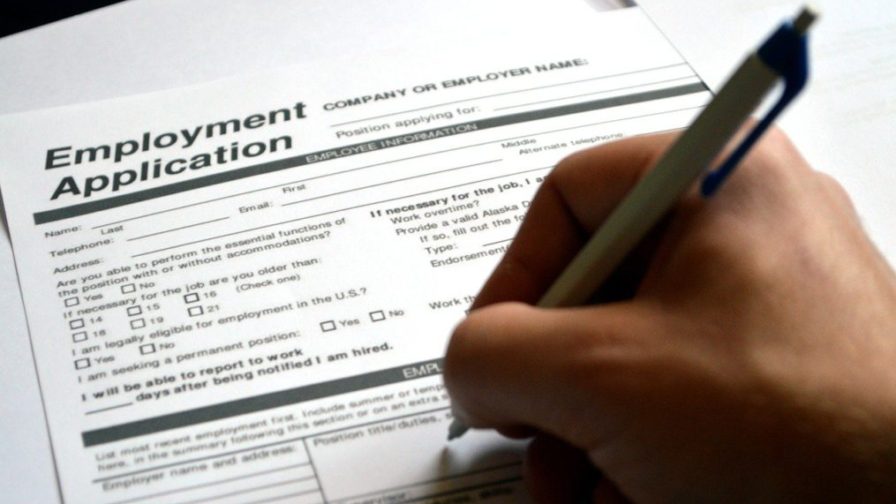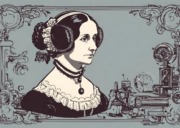
Business consultant and disability advocate Neil Barnfather MBE tells us about what it’s like having a disability in today’s job market.
Looking for a job is not always an easy task. Couple this endeavour with both practical and societal barriers and one begins to appreciate the statistics behind the unemployment figures relating to persons of working age who have a disability.
Often the problem is paradoxical in its nature; employers seek experience alongside qualifications. Under usual circumstances an individual progressively builds their experience portfolio, which serves as a catalyst to career progression.
Gain experience or go it alone?
How though to gain “experience” when the opportunity to achieve just that is denied to you simply as a result of you being disabled? For myself, I found that the only way I could achieve meaningful employment opportunities was to create those chances myself; hence my having created now 19 individual businesses.
Not everyone though has this ability, inclination nor desire. Frankly, looking back, I was forced into this position owing to the inequality of the recruitment and hiring practices of every organisation to which I approached.
In 2016 I sold my last business. I desired a change in my working lifestyle and wanted to be a part of something larger. I was seeking what I have termed “home”. Somewhere to grow, participate and contribute, to utilise my vast experience, knowledge (and yes) qualifications.
More than 1,700 applications later and I’ve almost nothing to show for it, I’ve had less than five face-to-face interviews and the feedback from those leads one to an inescapable nagging conclusion.
I do not make this statement lightly nor unconscious as to the ramifications of doing so. Nevertheless, I feel it necessary to make the case clearly. Despite many organisations claiming to be proactively seeking greater diversity within their workforce, setting out inclusion and equality statements, signing up to programs such as The Disability Confident Scheme etc, the reality is that many organisations are prejudiced by the human aspect of the recruitment process.
If I’m “extremely inspirational”, why didn’t I get the job?
My latest feedback from a face-to-face interview with a leading FTSE100 company, a signatory to the DCS and one which sets out a full diversity, inclusion and equality statement as to practices and policies, included referencing as to my being “extremely inspirational” just by way of example. Yet they were uncertain how I might lead a team or achieve buy-in from the corporation at large. Let’s set aside the contradiction that an inspirational individual is by definition a person of influence; I’m more concerned that it was felt appropriate to even reflect as to my being inspirational in the first place.
I find myself struggling profusely with the obfuscation between organisations which claim to be proactively seeking a diverse workforce, with initiatives, policies and which have signed up to the Obligatory Disability Confident Scheme (DCS), when in fact, beyond anything other than junior roles, they have no method of translating their stated vision to evoke change within their hiring managers and senior talent acquisition persons.
Why you should’ve hired me
I’ve long said, as a disabled person, one has to be naturally entrepreneurial with regards to much of daily life, when you are forced to think abstractly on an ongoing basis, to be pragmatic and disruptive (transformative) in everyday life. Imagine the impact such a person’s thought process might have upon business activities and the resulting benefits to which an organisation stands to gain from.
The sad truth is this, dear recruiter: when you’re writing your rejection letter to a person with a disability, more often than not, your excuse for failing to hire is actually born from “your” inability to see past your capacity to cope were you to be impacted by the disability presented to you.
You forget that the individual in front of you, either on paper or literally, has likely lived with their disability for a period of time, is adjusted and comfortable in managing their status. It’s not about you and your preconceptions, fears or assumptions. In allowing this thought process to dominate the decision-making function, the hiring process is hampered and an unbiased decision is impossible.
The reality of your rejection of a disabled candidate’s application is far to often “it’s not you, it’s me”, the choice has nothing to do with whether or not the candidate can perform the role, has the qualification, experience or knowledge; it comes down to your prejudiced unspoken opinion as to how “you” would cope which ultimately dooms the candidacy.
This series of circumstances is multiplied the further one progresses up an organisation‘s leadership hierarchy. If one is seeking a junior role, the “leap” in comprehension as to how the individual could “manage” the role is seismically distorted over, for example, an application for a leadership role. Let’s be honest with ourselves, recruiters simply struggle to understand how they perceive a disabled person’s ability to cope with life at the most basic level, let alone how they might function within a work environment. Now how might that disabled person provide leadership, fulfil the requirements of an organisation at a managerial level: “surely it’s not possible, I couldn’t do it”.
In terms of industries, I’ve had first-hand experience as to how this scenario plays out based on various sectors. In short, the more the hiring function seems to find an industry fast-paced, with frequent change, disruption and transformation, the greater odds are of prejudiced decision-making processes. The irony of course being that this is precisely where the survival skills of a disabled candidate provides for a uniquely balanced applicant over their able-bodied peers. This is certainly immensely true and recognisable in sectors such as technology and other “assumed” fast pace “innovation” orientated industries.
The saddening and ironic fact is that persons with a disability are likely far more innovative, dynamic and adaptable than the average employee, skills such as resourcefulness, lateral thinking, resilience and proactiveness. Employers truly are missing out on a wealth of genuine talent and capability.
To find out more, follow Neil on Twitter or read more of his blogs here.



